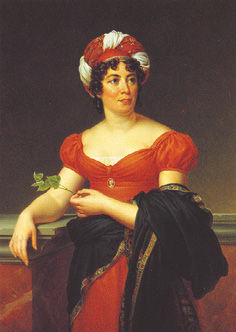48. Three aphorisms from Germaine de Staël (1766-1817), Reflections on the French Revolution, 1818; Beccaria, On Crimes and Punishments; and Rousseau, Reveries of a Solitary Walker, 178279
Those rights which are inalienable are equality before the law, freedom of the individual, freedom of the press, freedom of worship, equal access to all kinds of work, and taxation as agreed by the representatives of the people.
Germaine de Staël

Portrait of Madame de Staël by François Gérard (c.1810): https://commons.wikimedia.org/wiki/File:Madame_de_Staël.jpg
Do you want to prevent crime? Then ensure that Enlightenment goes hand in hand with freedom. The evils engendered by knowledge are inversely proportional to the extent to which any of it is actually disseminated, and the benefits directly proportional. A brazen imposter, never a man of the people himself, will always be adored by the ignorant but derided by the enlightened.
Beccaria
It is strength and liberty which produce excellent men. Weakness and slavery have only ever produced wicked ones.
Rousseau
Read the free original text online (facsimile) of de Staël’s, Considérations sur la Révolution française, 1818 edition: https://books.google.co.uk/books?id=UmUGSyDc1C8C&pg=PA281
Read the free original text online (facsimile) of Beccaria’s Dei delitti e delle pene, 1786 edition: https://books.google.fr/books?id=Zb5CAAAAcAAJ&pg=PA101
Read the free original text online (facsimile) of Rousseau’s, Les Confessions de Jean-Jacques Rousseau, suivies des Rêveries du promeneur solitaire, 1782 edition: https://books.google.co.uk/books?id=zyQ6AAAAcAAJ&pg=RA1-PA180
79 Germaine de Staël, Considérations sur la Révolution française, Liège: Latour, 1818, p. 281; Cesare Beccaria, Dei Delitti e delle pene, Parigi: Cazin, 1786, p. 54; Jean-Jacques Rousseau, ‘6e promenade’, from the first (posthumous) edition of Les Confessions de Jean-Jacques Rousseau, suivies des Rêveries du promeneur solitaire, Geneva, II, p. 180.







